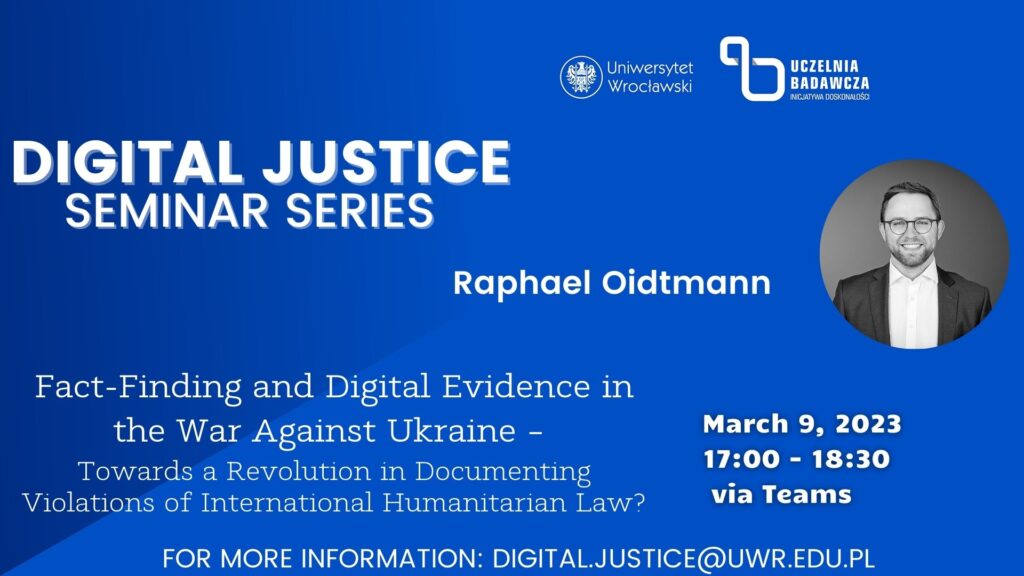
March 9th 2023 – Raphael Oidtmann – Fact-Finding and Digital Evidence in the War Against Ukraine
We are living in times of fake news and deep fake – a phenomenon also becoming ever more virulent in the context of documenting and, eventually, prosecuting international crimes. This notion has most recently become observable in the context of the War in Ukraine, where open-source intelligence (OSINT) material has proven to be of pivotal importance with a view towards covering alleged war crimes and human rights violations. While the overall relevance of OSINT material – amplified by the work of collectives such as Bellingcat or Forensic Architecture – has grown immensely, open (legal) questions remain, including when such digital materials may be admitted as evidence in international proceedings, what standards of proof and scrutiny are applied, and who is called upon to assess the validity and credibility of correspondent material.
The aim of this DJC Seminar was to address these and interrelated questions and to engage participants in examining both the future potential and eventual deficiencies of using OSINT-based evidence in international criminal proceedings.
Raphael currently serves as a parliamentary and legal advisor to the State Parliament of Hesse and holds further appointments as adjunct lecturer at Mannheim Law School, as associate researcher at the Max Planck Institute for Comparative Public Law and International Law, and as global fellow at the Watson Institute for International and Public Affairs at Brown University. Previously, he was the scientific advisor to the executive director at the Peace Research Institute Frankfurt (PRIF) and held positions as a research fellow and lecturer at the universities of Mannheim and Mainz. Holding master’s degrees in political science, international and comparative law, and international relations, he currently is an external PhD candidate at the Institute of Political Science at Goethe University Frankfurt. Recently, Raphael was listed as a rostered expert with the International Criminal Court (ICC) and consulted with the Extraordinary Courts in the Courts of Cambodia (ECCC). He is also a ‘re:constitute’ fellow, working on the notion of impunity and its (legal) conceptualization within the context of the EU’s engagement towards the War in Ukraine.

